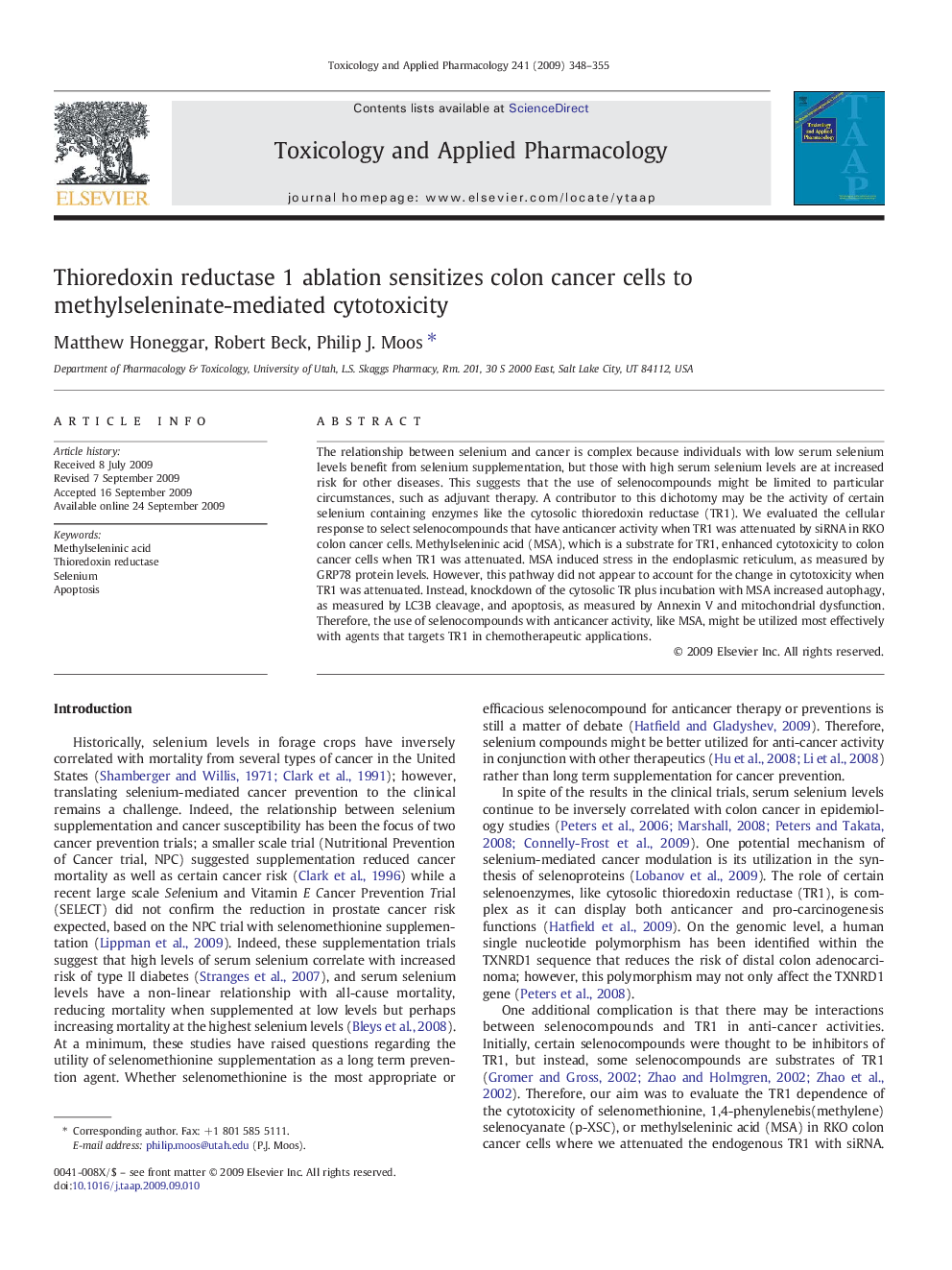| Article ID | Journal | Published Year | Pages | File Type |
|---|---|---|---|---|
| 2570731 | Toxicology and Applied Pharmacology | 2009 | 8 Pages |
The relationship between selenium and cancer is complex because individuals with low serum selenium levels benefit from selenium supplementation, but those with high serum selenium levels are at increased risk for other diseases. This suggests that the use of selenocompounds might be limited to particular circumstances, such as adjuvant therapy. A contributor to this dichotomy may be the activity of certain selenium containing enzymes like the cytosolic thioredoxin reductase (TR1). We evaluated the cellular response to select selenocompounds that have anticancer activity when TR1 was attenuated by siRNA in RKO colon cancer cells. Methylseleninic acid (MSA), which is a substrate for TR1, enhanced cytotoxicity to colon cancer cells when TR1 was attenuated. MSA induced stress in the endoplasmic reticulum, as measured by GRP78 protein levels. However, this pathway did not appear to account for the change in cytotoxicity when TR1 was attenuated. Instead, knockdown of the cytosolic TR plus incubation with MSA increased autophagy, as measured by LC3B cleavage, and apoptosis, as measured by Annexin V and mitochondrial dysfunction. Therefore, the use of selenocompounds with anticancer activity, like MSA, might be utilized most effectively with agents that targets TR1 in chemotherapeutic applications.
